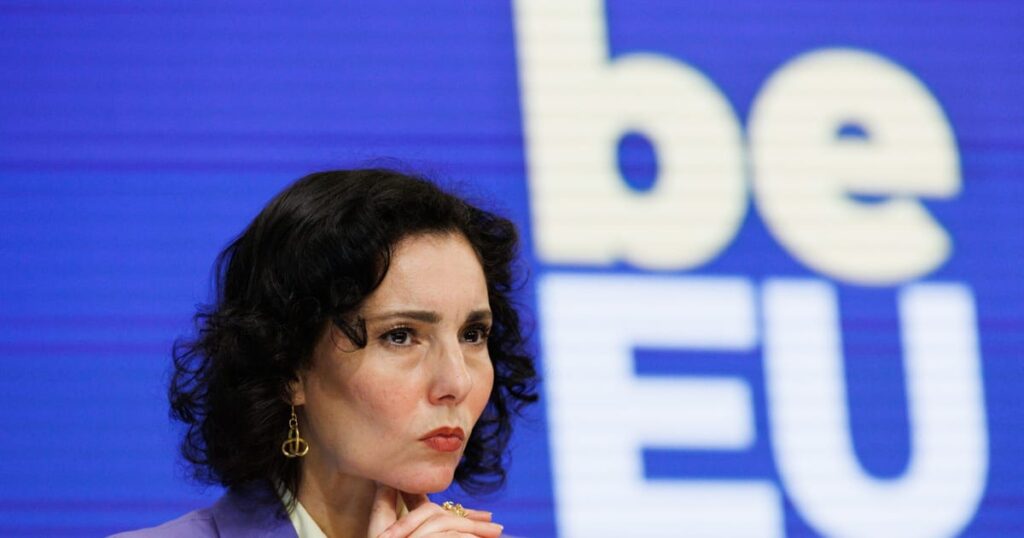“I think we need to have the courage to make a decision, we need to go all the way to the end of Article 7, we need to invoke Article 7 all the way, which provides for the end of the veto,” she said.
The European Parliament launched the first stage of an Article 7 procedure against Hungary in 2018, but the process has stalled. The next step of the procedure, which is used when a country is deemed to be at risk of violating the EU's core values, is often referred to as the “nuclear option” because it provides for the most serious political sanction the EU can impose on a member state – the suspension of the right to vote on EU decisions.
Hungary is due to take up the presidency of the Council of the EU in July, which will give it further powers to set the EU's agenda and priorities for six months, but Hungarian Prime Minister Viktor Orbán continues to obstruct EU decision-making on key issues, from military aid to Ukraine to sanctions against Russia and next steps to welcome Kyiv into the EU.
“This is the moment of truth,” Labib said. “Either we face up to our responsibilities – which requires political courage and willpower – or we put in place mechanisms that don't work. So we have to make a choice.”
“If we follow through on this mechanism, it will definitely work. If it doesn't work, we have to reform it. That is the future of the European Union,” Labib said.
Frustrated by Hungary's blocking tactics, other European countries are considering creative ways to bypass Hungary on key EU decisions, such as targeting Russian exports without requiring unanimity. And some EU leaders have suggested giving Hungary a weaker post in the next European Commission, despite Hungary's desire to keep its prestigious enlargement mission.


